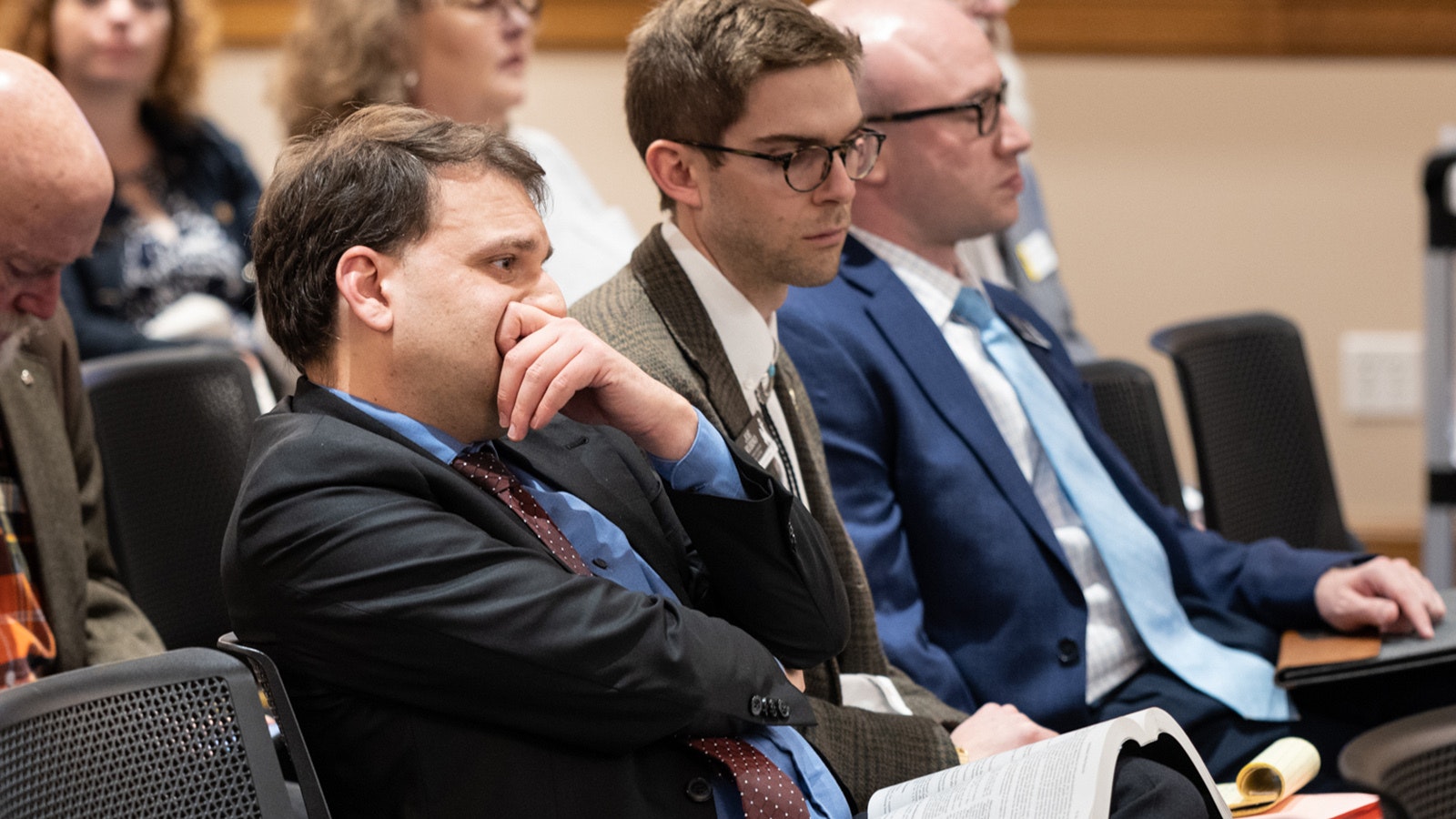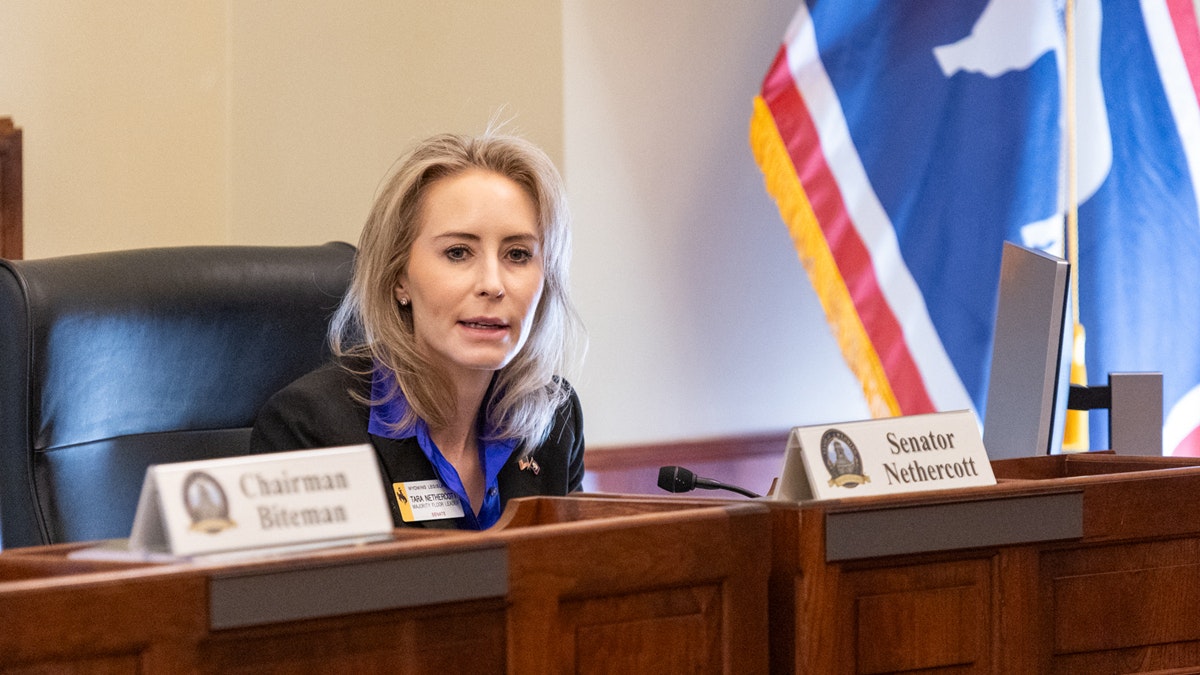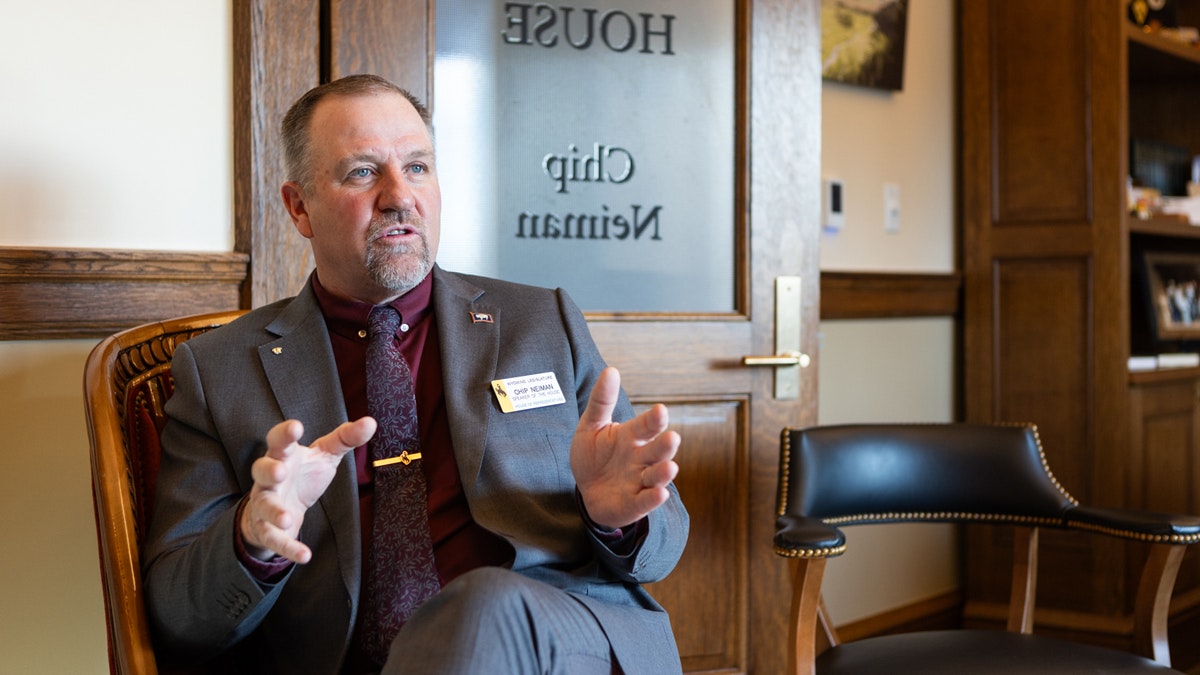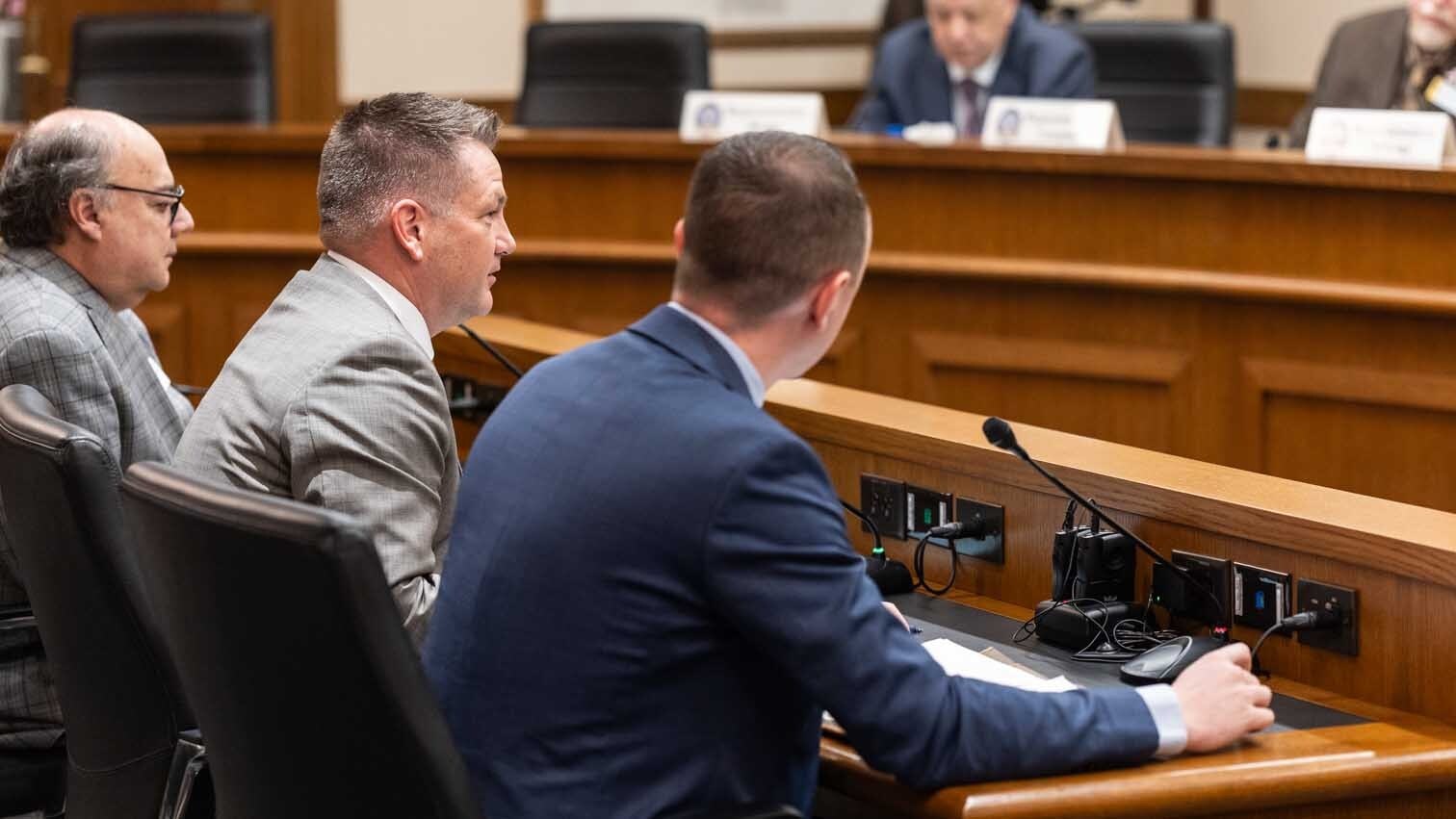Proposed legislation that would have given the Wyoming Secretary of State authority to question and revoke certain election equipment was stripped Tuesday morning.
There were two important amendments made to the bill titled “Election Equipment – Federal Certification” by Secretary of State Chuck Gray’s staff while it was being discussed previously in the House Corporations, Elections and Political Subdivisions Committee.
Although neither the committee nor the public were given prior notice to inspect the amendments his staff brought, they were approved and the bill passed out of the committee and through the House without any further changes.
Although the amendments are already rules used by the Secretary of State’s office, they are not written into or can override current state statute. Wyoming county clerks now follow state law and are considered managers of their own election equipment.
If passed as amended, House Bill 47 would have given the secretary of state power to make decisions about the reliability of a county’s election equipment without the local clerks’ approval.
There are still parts of the bill that blur the lines between the responsibility of the county clerks and the secretary of state on election equipment.
Under HB 47, a secretary of state is allowed to deny an application for certification of an electronic voting system if the vendor fails to notify them of necessary enhancements or adjustments to the electronic voting system, the system does not produce accurate results and reports as required by law, or if the system fails to comply with any other rule of the secretary of state.
Gray’s attempt to amend House Bill 47 drew more heated debate Tuesday in a meeting of the Senate Corporations, Elections and Political Subdivisions Committee, which ultimately didn’t take up the amendments.
Power Of The Amendments
As previously written, HB 47 gave the secretary of state power to deny certifying election equipment if voting machines, the vendor or its employees were determined to be “problematic” in ensuring an election can be run fairly.
What is defined as problematic is not offered in the legislation. If a conspiratorial allegation was determined to be “problematic,” it could theoretically be used as the basis for revoking election equipment.
“I’m concerned that if we give any secretary of state the authority to come up with some problem where a word like ‘problematic,’ that this is problematic to them, that suddenly it can upset the certification of our machines and lead to a decertification,” said Fremont County Clerk Julie Freese.
Freese said “it takes a long time” to get new machines delivered to a county and up and running for an election.
“We want to be very careful about how we’re allowing an easy decertification,” she said.
Too Arbitrary
House Bill 47, as amended, also would have written into state law that Gray and any future secretaries of state have the power to reject voting equipment if a vendor rejected a request to submit their systems for re-examination. It also essentially would have given the office power to override some county-level election decisions.
These requests could cost millions of dollars to fulfill and if rejected, would give the SOS the statutory right to reject using certain equipment shortly before an election.
Freese said there is too much ambiguity in the phrase “re-examination.”
“I just don’t like the idea that the secretary of state or a county clerk, any one of those people, can say, ‘Hmm, I think there should be some re-examination of this because I’m not really sure if that voting machine system worked,’” said Freese.
All federally certified election equipment in America undergoes a test from a laboratory certified by the U.S. Election Assistance Commission or National Institute of Standards and Technology.
These federal tests are rigorous and often involve the use of millions of test ballots.
The county clerks have the power to notify the secretary of state that their election equipment doesn’t meet federal certification under the legislation, which Gray and other future secretaries can then act on.
The amendments were removed from the bill with a 4-1 vote.
HB 47 passed 5-0 through the committee and advances to the Senate floor for discussion.
Certification
Retained within the bill is the requirement that an equipment vendor provide to the Secretary of State’s office a list of any written complaints or concerns made to the vendor by other jurisdictions in Wyoming and abroad, and how these complaints or concerns were resolved.
“We’re a pretty small sample size and we want to take in those complaints from other states of what might be occurring,” Gray said.
At the heart of the bill is implementing USEAC certification of equipment.
It’s a rule “we’re certainly supportive of,” Gray said. “There is no intent from our office to ever remove EAC certification.”
Election equipment company ES&S has a contract with the state of Wyoming to provide all of its election equipment that’s paid for by the state.
Gray told the Senate Corporations Committee he recently had discussions with ES&S representatives who had informed him the company supported the legislation as amended but provided no further evidence of that.
“We kind of like to work on real facts,” state Sen. Cale Case, R-Lander, said in response.
Distrust
Gray defended his office’s amendments, stressing the need for greater transparency when it comes to elections.
“What is the intent of this bill? I think it’s to provide election confidence and have that process in place,” he said. “If we’re going to codify this, we should have the same process or at least as strong of a process as there currently is in our rule.”
Kathy Russell, executive director of the Wyoming Republican Party, seconded this stance, saying Gray should not be hamstrung.
“In terms of integrity and security, the secretary of state is the point person for the state and so receives reports from various communities,” Russell said. “And given that we have multiple emplacements of this voting equipment across the state, if something is found in one county, that would allow the secretary of state to say, ‘We have a problem here, we need look at this.’”
Harkens Back To 2020
Hundreds of public records requests were made to county clerks across Wyoming in the wake of the 2020 election. There also was an effort initiated in Park County to perform a hand count audit of the 2020 election results.
There have been no proven instances of machines malfunctioning or providing inaccurate elections results in Wyoming.





